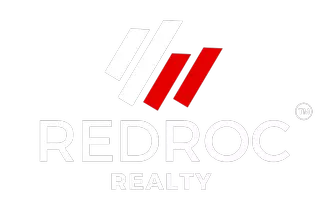Blog > 5 Red Flags in a Condo Listing You Should Never Ignore
5 Red Flags in a Condo Listing You Should Never Ignore
From shimmering towers in Brickell to charming beachfront units in South Beach, Miami offers condo options for nearly every lifestyle and budget.
But not every sleek listing tells the full story.
Behind the polished photos and “resort-style living” promises, there can be hidden issues that cost buyers thousands — or worse, trap them in a financially unstable community.
At RedRoc Realty, we help clients spot what the photos don’t show. Here are 5 condo red flags every buyer should watch out for in 2025.
- Low Reserves or No Reserve Fund Disclosure
A condo’s reserve fund is essentially its savings account for major repairs — think roofs, elevators, plumbing, and seawalls.
🚩 Red Flag: Vague answers about reserves, or a reserve balance that’s disproportionately low for the number of units and age of the building.
Why it matters: If reserves are underfunded, owners are more likely to get hit with large special assessments when repairs are needed.
💡 RedRoc Tip: Ask to review the condo association’s latest financials and reserve study. A healthy reserve fund = financial stability.
- Pending Litigation
Legal battles within or against a condo association can delay closings, raise insurance costs, and tank resale values.
🚩 Red Flag: “Litigation disclosed” in the listing or a seller who seems uncomfortable answering legal questions.
Why it matters: Ongoing lawsuits — whether with contractors, insurance providers, or residents — could impact your financing or lead to future assessments.
🧠 RedRoc Tip: We work with closing attorneys who thoroughly check public records and help you avoid high-risk properties.
- Sky-High HOA Fees with No Clear Justification
HOA (Homeowners Association) fees are standard in condo communities — but in Miami, they can vary dramatically.
🚩 Red Flag: $1,200+/month HOA fees for a unit with modest amenities, or an HOA that hasn't increased fees in years despite inflation.
Why it matters: Low fees often mean deferred maintenance. High fees without transparency could indicate mismanagement or poor budgeting.
RedRoc Tip: Always request a breakdown of what the monthly fee covers — including reserves, staff, insurance, and utilities.
- Recent or Upcoming Special Assessments
A special assessment is a one-time fee levied on owners to cover costs not budgeted for — like emergency repairs or required upgrades.
🚩 Red Flag: Mentions of “approved assessment” or “upgrades coming soon” without clear dollar amounts.
Why it matters: These fees can run into the tens of thousands — and they're due even if you just bought the unit.
RedRoc Tip: Ask for the building’s past 3 years of assessment history and minutes from recent HOA meetings. This often reveals upcoming risks.
- Unclear or Unstable Short-Term Rental (STR) Policies
Short-Term Rentals (STRs) — like Airbnb — are a major income strategy for many condo buyers. But not all buildings allow them, and rules can change quickly.
🚩 Red Flag: The listing says “Airbnb-friendly” but offers no confirmation from the HOA or zoning department.
Why it matters: Violating STR rules can lead to fines over $20,000 in Miami — and some lenders won’t finance STR-heavy buildings.
RedRoc Tip: We verify STR permissions at the building and city level before you buy. Don't gamble with assumptions.
Glossary of Key Terms
- HOA: Homeowners Association — manages shared property, enforces rules, and collects dues
- Reserve Fund: A community’s savings account for large repairs and replacements
- Special Assessment: A one-time fee charged to cover shortfalls for major expenses
- STR: Short-Term Rental — a lease under 30 days, often for vacation use
- Litigation Disclosure: Legal action involving the condo association or building
Final Thoughts: Don’t Just Buy the Unit — Buy the Building
A great condo isn’t just about what’s inside the four walls — it’s also about the financial health, governance, and stability of the building as a whole.
At RedRoc Realty, we go beyond the listing and help our clients uncover potential risks before they close. We ask the questions many agents won’t — and protect your long-term investment.
Buying a condo in Miami? Let us help you spot the smart ones.
Call 786-898-0476 or visit redrocrealty.com to schedule your expert consultation.
Disclaimer
All information provided reflects current market practices and common risks associated with condo purchases in Miami-Dade County as of 2025. Buyers should review each building’s specific documentation and consult a licensed professional before making purchasing decisions.
Sources
- Florida Department of Business and Professional Regulation – Condominium Governance
https://www.myfloridalicense.com - Miami Association of Realtors – Condo Market Reports
https://www.miamirealtors.com - Florida Realtors – Understanding Special Assessments
https://www.floridarealtors.org - City of Miami – Short-Term Rental Regulations
https://www.miamigov.com - Community Associations Institute (CAI) – Reserve Studies & Financial Planning
https://www.caionline.org
